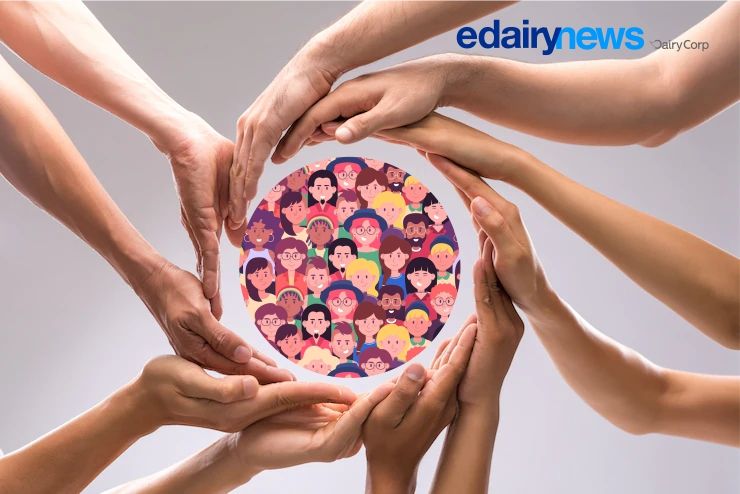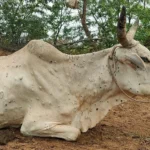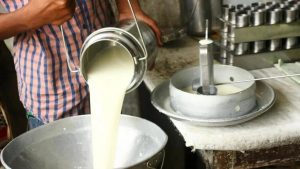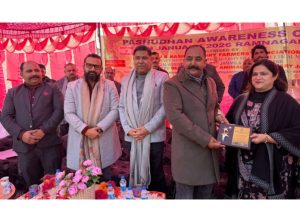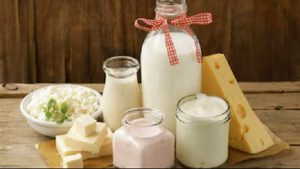
The way we feed ourselves directly determines the strength with which we face the world, a healthy body, an active, creative mind, capable of intelligent reasoning. The importance we give to nutrition has to do not only with filling our bellies for survival, it has to do with prioritizing and exalting our human condition.
Humans are different from other animals. We have language, advanced memory systems, imagination, creative abilities, intelligence, consciousness and the ability to evaluate future actions and culture. Humanism born from the hand of Anthropocentrism was constituted as a defense of the highest human values, promising the construction of a better world based on the control of nature.
This conception does not mean a position of power that enables the abuse of resources, but a capacity to coexist synergistically with its environment, animal and natural, taking for itself what is necessary, and developing to the maximum its capacities to use those resources in order to ensure the continuity of its existence.
However, there is a whole current of Anti-humanist thought that assumes that the extinction of humanity would make the world a better place, and found a faithful ally in the ecological movements, placing man as a pest, and no longer as a superior being, deserving of primacy and valuation of his individuality. This thought quickly found shelter in the values of the political left, whose discourse does not speak directly of extinguishing us, but degrades us as individuals, repressing or rejecting that individuality, annulling our freedom, our reason.
Milk and dairy products are tools for combating hunger and food insecurity, and are fundamental components of a healthy diet. High in macronutrients (carbohydrates, fats and proteins), as well as essential micronutrients such as vitamin A, vitamin B12, calcium and magnesium, their consumption is associated with increased growth in wealthier populations, as well as in poorer ones. This gives at-risk populations the opportunity to develop in body and mind to overcome their vulnerability, so that their poverty is no longer a perpetual condition, but a circumstance from which they can emerge with ingenuity, cognitive capacity to receive education and other motivations. Malnutrition puts people at a disadvantage, and resolving that access to nutrients is true equality.
Milk and dairy products are a great source of nutrition at all stages of life and even though hundreds of millions of people still do not have access to adequate and nutritious food, more work is being done not to combat hunger and malnutrition, but to destroy the production of highly nutritious foods, such as milk and dairy, so that access to them is becoming increasingly difficult, more expensive, and more “immoral.”
Dairy production is among the most affected in this senseless fight against our most traditional and efficient food systems. It is urgent that we return to a people-oriented culture, to a free and healthy world with nutritious food grown and produced in natural processes; and that we cooperate in preventing a famine caused by world control plans based on ideology and not on sound science or evidence.
Ideologized science is assuming an unprecedented role in political decision making, putting in check the most primordial human freedoms. Thus, the new environmental regulations are so extreme that they are forcing producers in the dairy meccas of the world to shrink their herds or pay exorbitant taxes to maintain them, detonating their profitability, forcing them to close down or move on to something else. Milk and dairy products will become increasingly scarce for ideological reasons.
The Enlightenment was a cultural and philosophical movement that emerged in Europe between 1688 and the French Revolution. It was based on autonomy, on individuals being able to decide for themselves; total freedom to question and examine, criticize and challenge dogmas and institutions; and on universality, which stems from the principle of equality. This movement paved the way for the development of science. But science can easily become corrupted, distorting enlightenment and becoming its enemy rather than its avatar.
An example of this is what is happening in the Netherlands, the world’s second largest agricultural exporter, a food superpower, which occupies a very important place in the global food chain; however, its government chose, over food security, highly debatable actions against climate change. In the end, both people and climate will be worse off. Because it is not the methane emitted by livestock that is responsible for global warming, since it belongs to a biogenic cycle, and is recycled in photosynthesis, unlike the gases emitted by burning fossil fuels, which pile up in the atmosphere for a thousand years, accelerating climate change.
The eradication of hunger is the greatest challenge facing humanity. We must support the economic growth of developing countries and not deplete those that are already developed, valuing the farmer, livestock and dairy producer, because the need for the food they produce will increase as the population grows.
The livestock sector in general and the dairy sector in particular, will help to meet this great challenge, because it is the growth of the venerable humanity, promoting food security and nutrition.
Consuming dairy products does good, and helps prevent chronic malnutrition, which is especially harmful to children because stunting is largely irreversible and is associated with lower intellectual development, lower productivity and a higher risk of chronic diseases in the future. And producing them is a noble task that employs more than 150 million households around the world.
Have you had your glass of milk today?
Valeria Guzmán Hamann
EDAIRYNEWS
